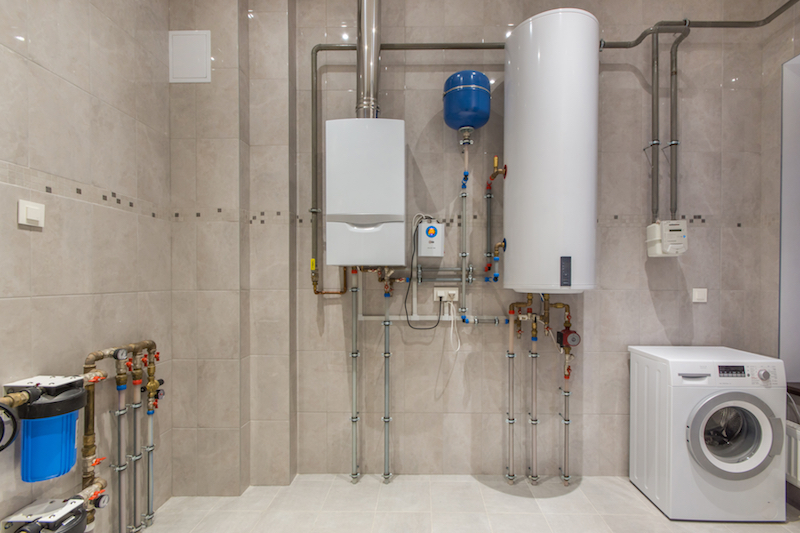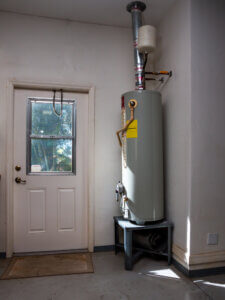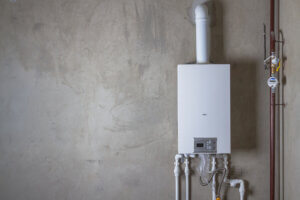It’s unlikely you spend much time thinking about your water heater until something happens and it requires your attention. Water heaters are integral to our homes as they keep our water hot, our showers steamy and our clothes clean. If you’re in the market to repair, replace or install a new hot water heater, here are all of your options along with their costs, pros and cons.
What is a Water Heater?
Simply put, a water heater, well, heats your water. It does this by using either electric or gas power to heat a container of water, usually a tank. This heated water is then distributed throughout your home whenever you turn on a hot water tap.
How Long Does a Water Heater Last?
On average, a water heater should last between 8 to 12 years. Depending on the specific model you go with, this number can vary.
What Types of Water Heaters are Available?
There are three main types of water heaters commonly found in Canadian homes. Tank-type water heaters are easily the most common, however, tankless models have been steadily gaining popularity in the past few years. Hybrid models, while relatively new, are a great option when it comes to energy efficiency. Here are the factors that will help you determine which type is best for your home.
1. Tank-Type Water Heaters
The most common water heater found in Canadian homes is tank-type. Just like its name suggests, these units have a large insulated tank that holds the water that is heated by gas or electricity. Tank-types come in a wide variety of sizes, but most homes require a 40 or 50-gallon tank.
How It Works:
Your tank is full of water waiting to be used. The process works by taking cold water that enters through the bottom of the tank and then heating it by either electric elements inside the tank or a gas flame below the unit. An adjustable thermostat helps to regulate and maintain the temperature. To ensure pressure doesn’t build up, there is also a pressure-relief valve inside the tank.
When you turn on your hot water tap, either to wash dishes or take a shower, the heated water is pumped out from the top of the tank and is pushed through the hot water supply pipes. As you use the hot water, your tank is automatically refilled with cold water at the bottom. This causes the water heating process to start again.
Pros:
The biggest benefit of a tank-type heater is that you always have immediate access to hot water. Since your tank is constantly heating water, you do not have to wait for it to warm up before you use it.
Cons:
Your tank can only hold a limited supply of water, which can cause issues during high-use periods like first thing in the morning when everyone is trying to shower and get ready for the day. In addition to their limited supply of water, tank-type heaters are not energy efficient as they are constantly using energy to maintain the temperature. This results in high operating costs and energy bills.
Costs:
Tank-type heaters cost less to buy upfront but operation and maintenance fees are typically higher than tankless models. You can expect to pay between $900-2,000, with an average cost of around $1,300, depending on the model.
When it comes to gas vs. electric, gas-powered water heaters are more expensive to buy than electric, but cost less to operate. Electric water heaters are more efficient than gas and come with a higher energy-factor rating.
2. Tank-Less Water Heaters
Tank-less water heaters are small, wall-hung units that provide on-demand heated water for the entire home. Unlike tank-type units, there is no bulky storage tank.
How It Works:
When you turn on a hot-water tap, cold water is drawn into the tank-less unit and a flow sensor turns on an electric heating element or a gas-fired burner, which warms an internal heat exchanger. Cold water passes over the heat exchanger and warms the water to a preset temperature. Hot water then passes directly to your faucet or appliance, not to a storage tank. If your unit is gas-powered, combustion gases are exhausted through a dedicated, sealed vent pipe.
Pros:
The biggest benefit of a tank-less unit is that it is only in use when you need it. This means that it is not constantly running like a tank-type unit. This makes tank-less units more energy efficient. In fact, a tank-less water heater delivering 40 gallons of hot water per day uses about 34% less energy than a tank-type unit. There is also an unlimited supply of water, making them a great choice for large families. Tank-less units also last up to 20 years, nearly twice as long as other models.
Cons:
A tank-less unit may sound like the obvious choice but they do come with their drawbacks. While you have an unlimited supply of hot water, there can be significant wait time in heating the water, which is both wasteful and inconvenient. Tank-less units are also more expensive to install and may require a new circuit to handle the amount of power they need to operate. They are also more expensive to purchase, install, and repair.
Costs:
Depending on your unit and if you need new power or gas lines installed, you can expect to pay between $2,000-6,000 for tank-less water heater installation. Homeowners on average spent about $3,000 for their units.
3. Hybrid Water Heaters
Hybrid water heaters combine the energy-efficient benefits of tank and tank-less units and come with the highest price tag.
How It Works:
Hybrid water heaters are basically tank-type heaters with an electric heat pump. The pump uses a compact compressor and evaporator coil to capture heat from the air in the room and then transfers the heat to the incoming cold water.
Pros:
Hybrid water heaters use about 60% less energy than tank-type units. They are the most energy-efficient and cost less to operate.
Cons:
The biggest draw-back of hybrid models is the pricetag. They cost nearly twice as much as other models, however, most families recoup the money spent within three to four years thanks to lower power bills.
Costs:
At nearly twice as much as other units, you can expect to pay between $1,200 to $3,500.
Now that you know more about water heaters than you ever have before, it’s time to make a decision. When you’re ready to install or repair your water heater, think about if energy-efficiency or instant hot water is more important to you. Do the upfront costs outweigh the long-term energy savings? Figure out which of these factors is most important to you and your home and make your decision based on that. When in doubt, you can always connect with a pro to help you make your final choice.


